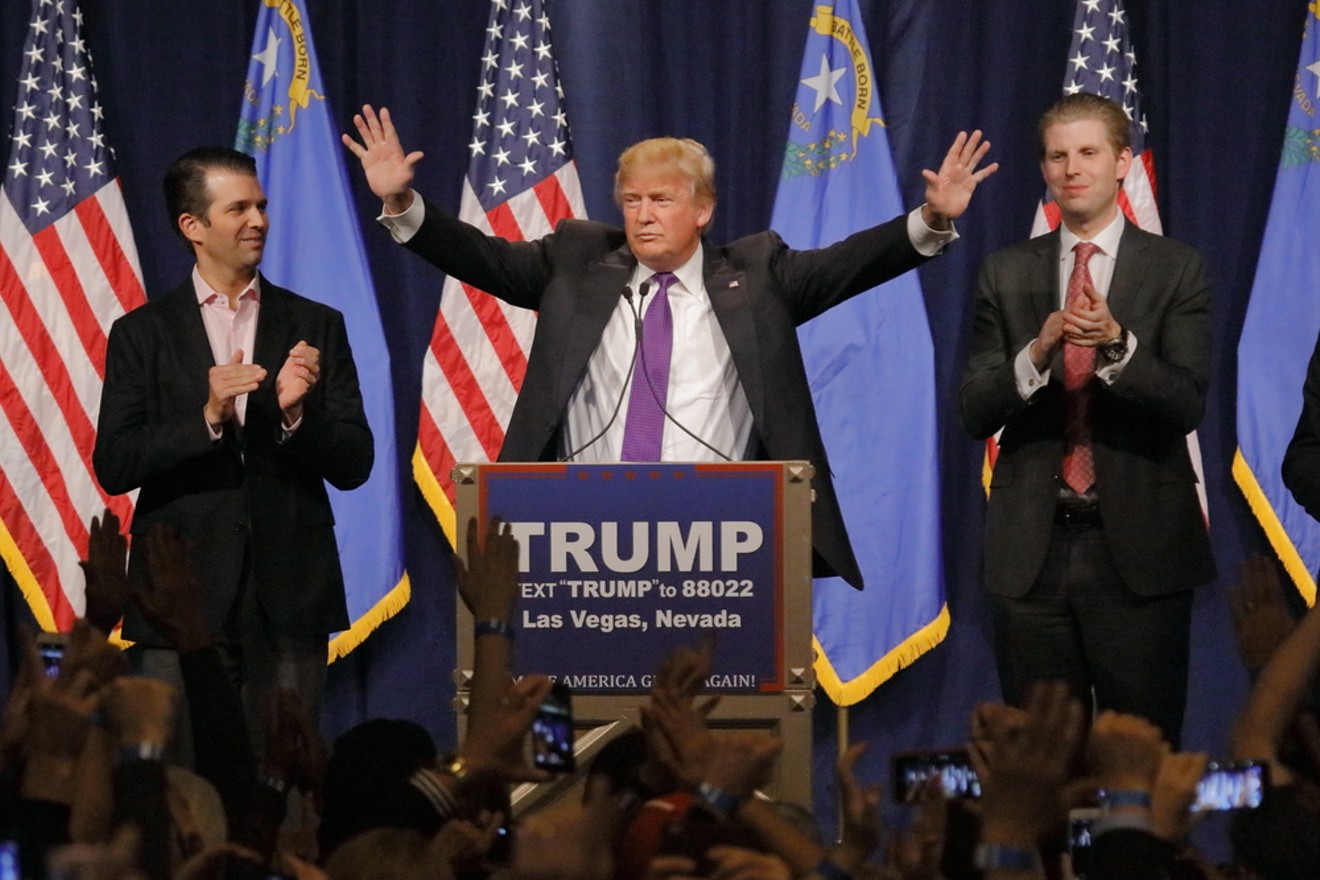A lawsuit filed by Colorado's "faithless electors" is one step closer to having its day in U.S. District Court in Denver — and, perhaps eventually, the highest court in the country.
On Octobr 25, the plaintiffs — Michael Baca, Polly Baca (no relation to Michael) and Robert Nemanich — and Secretary of State Wayne Williams announced they have reached a deal that will allow the lawsuit against Williams's office to move forward with a few conditions. The electors have agreed to not sue Williams, the lawsuit's original defendant, and to waive any claims for damages and attorney fees above $1. In turn, Williams has agreed to waive any immunity in the case.
Despite multiple courts ruling against their efforts, since last year Baca, Baca and Nemanich have been pushing to give members of Colorado's Electoral College the right to break their oath and vote for a candidate of their choosing, not the candidate picked by the state's voters.
Though all nine of Colorado's electoral voters ultimately cast their votes for Hillary Clinton in December (after one, Michael Baca, was removed and replaced) a month after she had conceded the race, Baca, Baca and Nemanich argue that Williams, a Republican, intimidated them into voting for the Democrat who won the popular vote in Colorado even though they wanted to break ranks and vote for Republican nominee John Kasich. If they and some of the other 538 members of the Electoral College had voted differently, they might have kept Donald Trump from becoming president.
For the most part, state political parties select Electoral College voters — how many depends on the size of the state's congressional delegation — to cast votes for the presidential and vice-presidential candidates who receive the most votes in the state. In Colorado, voting for a losing candidate is against the law.
The plaintiffs and defendant in Colorado's Electoral College lawsuit want the matter resolved before the 2020 presidential election, even if that involves letting the U.S. Supreme Court make the final decision. "Ultimately, we just want an answer to the constitutional question at issue before the 2020 presidential election, and this is the least expensive and most efficient path," Williams says.
According to Williams, if the courts ultimately decide in the plaintiffs' favor, his office "will have to propose legislation to, among other things, change how electors are appointed to and identified on the ballot, guard against vote buying and selling, and protect against other corruption," as the duties of an Electoral College member would change from ceremonial to potentially game-changing.
[
{
"name": "Air - MediumRectangle - Inline Content - Mobile Display Size",
"component": "12017618",
"insertPoint": "2",
"requiredCountToDisplay": "2"
},{
"name": "Editor Picks",
"component": "17242653",
"insertPoint": "4",
"requiredCountToDisplay": "1"
},{
"name": "Inline Links",
"component": "18838239",
"insertPoint": "8th",
"startingPoint": 8,
"requiredCountToDisplay": "7",
"maxInsertions": 25
},{
"name": "Air - MediumRectangle - Combo - Inline Content",
"component": "17261320",
"insertPoint": "8th",
"startingPoint": 8,
"requiredCountToDisplay": "7",
"maxInsertions": 25
},{
"name": "Inline Links",
"component": "18838239",
"insertPoint": "8th",
"startingPoint": 12,
"requiredCountToDisplay": "11",
"maxInsertions": 25
},{
"name": "Air - Leaderboard Tower - Combo - Inline Content",
"component": "17261321",
"insertPoint": "8th",
"startingPoint": 12,
"requiredCountToDisplay": "11",
"maxInsertions": 25
}
]












